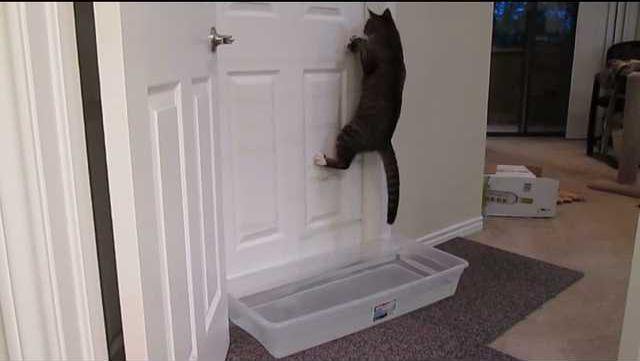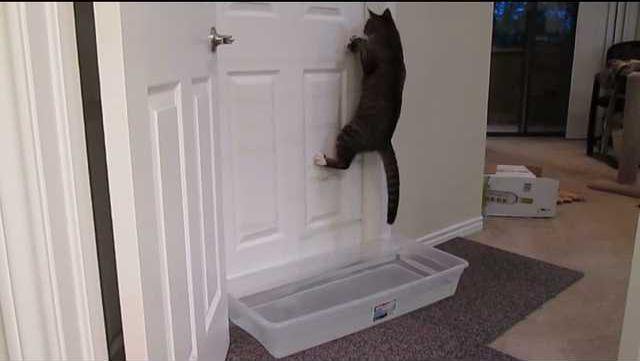CATTINGTON — If you spend any time around a cat, you know two things: 1) Cats like to be places you don’t want them to be, and 2) Cats are wily and creative, not unlike a ninja, in getting to those places.
As a cat owner, if you don’t set boundaries for your cat’s behavior, you will soon find yourself kowtowing to your cat, effectively making your cat the master. So you would think that closing a door would be a valid way to keep your cat out of a room, helping you set those boundaries.
But a cat named Mulder is here to prove you wrong.
The first part of the video is only slightly disconcerting as Mulder simply jumps to grab onto a lever handle with his front paws, letting gravity open the door. Nothing too surprising there. It’s when Mulder’s owner puts a big bin of water in front of the door to discourage the cat’s behavior that Mulder really shows he rules the roost.
With the bin of water in place, Mulder not only has to come at the handle from an angle, but if he doesn’t open the door on the first try, he has to push off the door to jump clear of the water. And he does it easily, and maybe a bit haughtily.
This may be inconvenient as a typical cat owner, but with a little more training in a nefarious direction, Mulder could make his owner rich as an unexpected cat burglar.








